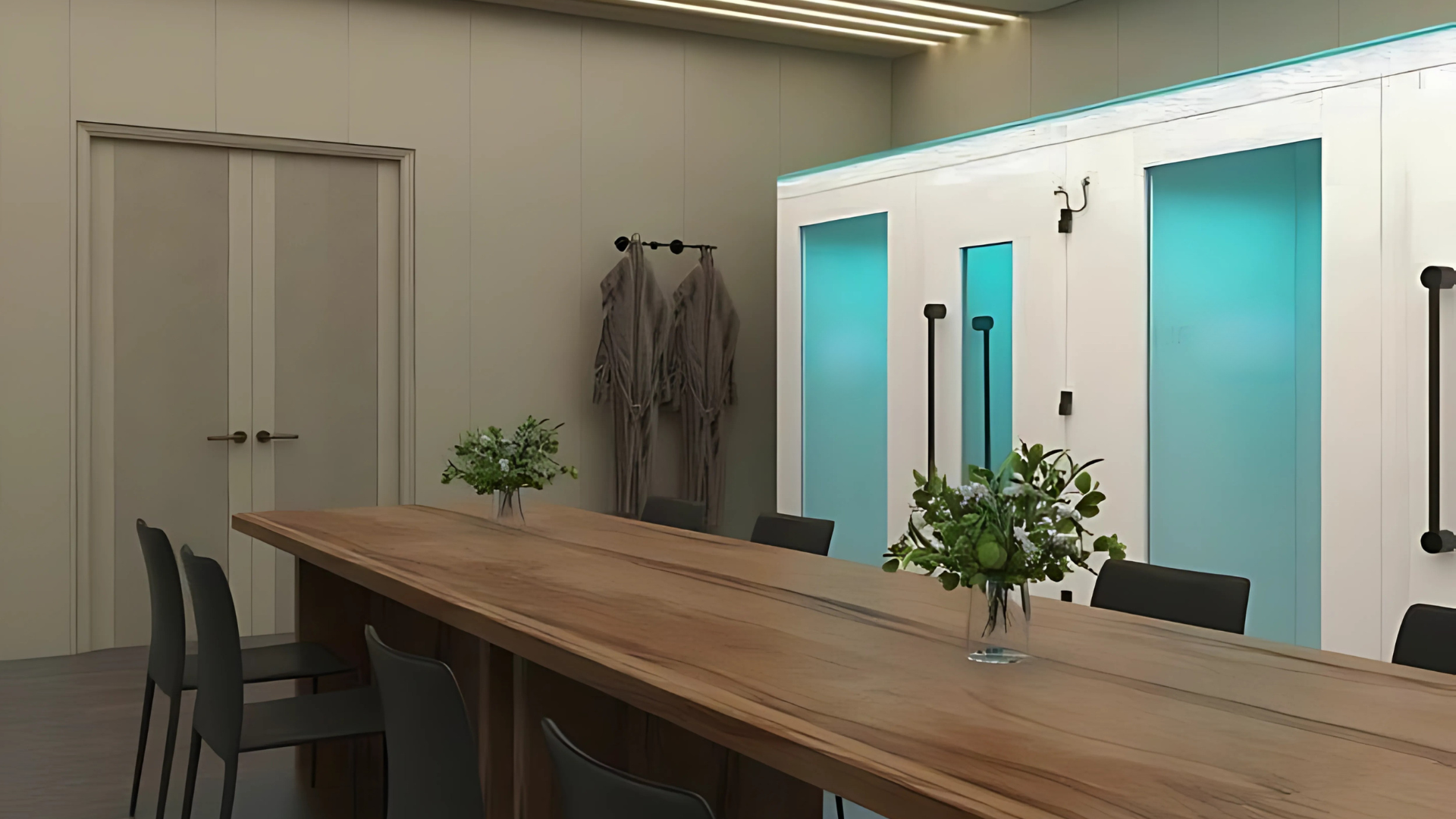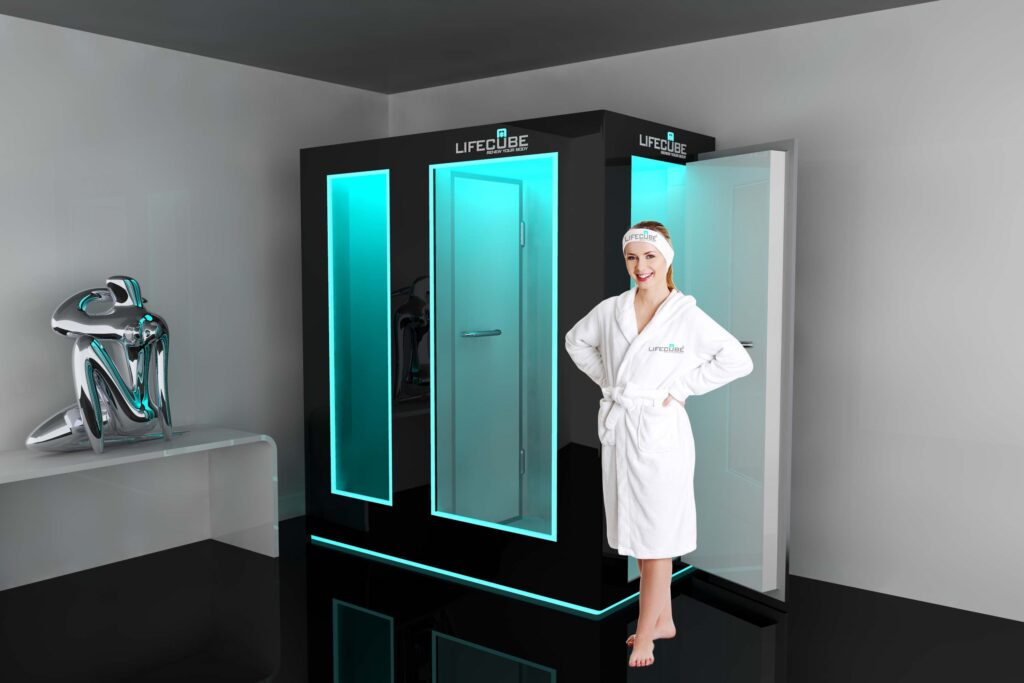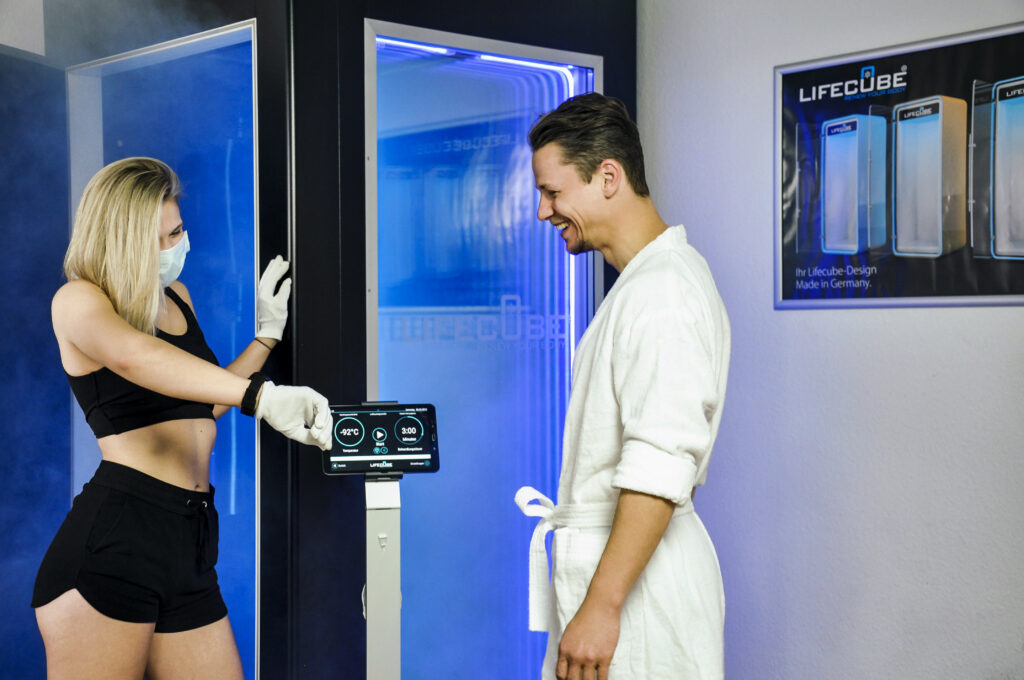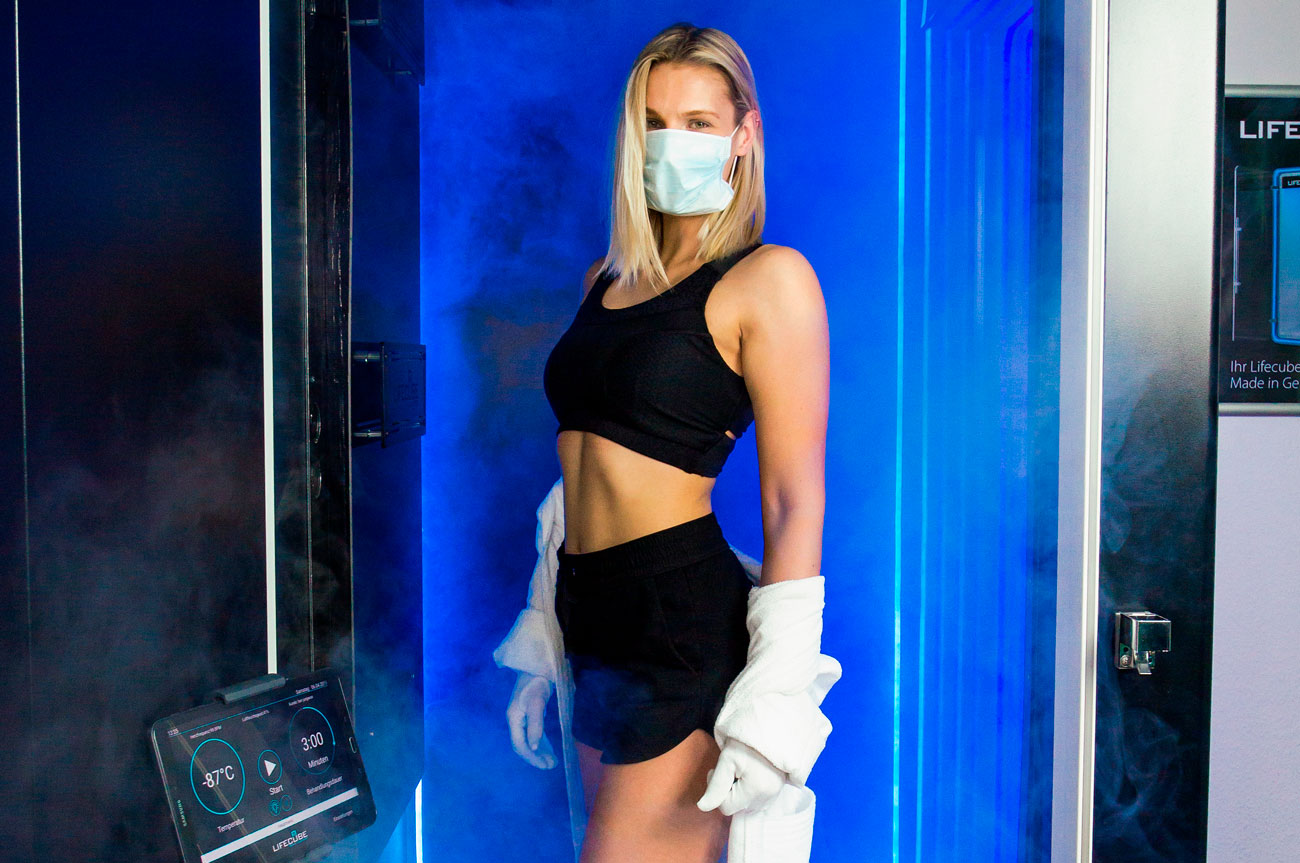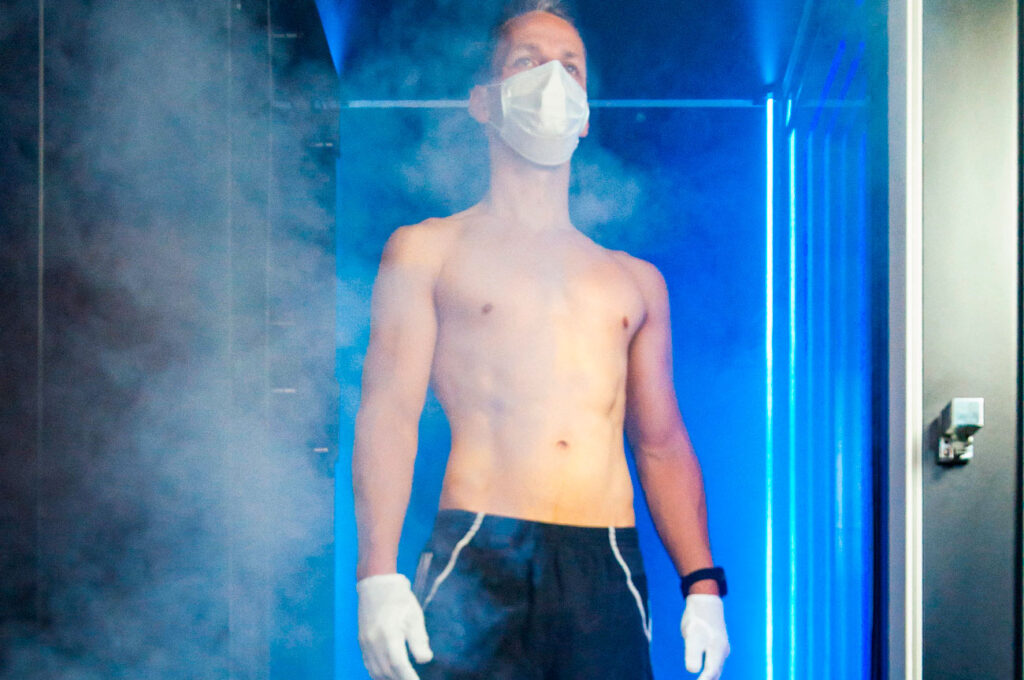But can spending a few minutes in a freezing cold chamber really help you fall asleep quicker and sleep more deeply? Or is it just another trendy treatment that sounds cooler than it actually is? With more people now trying cryotherapy in London as part of their wellness routine, it’s a good time to explore whether Cryotherapy for Better Sleep truly works. Let’s take a closer look at the science, what experts are saying, and whether cryotherapy might just be the trick to help you get better rest.
What Is Cryotherapy?
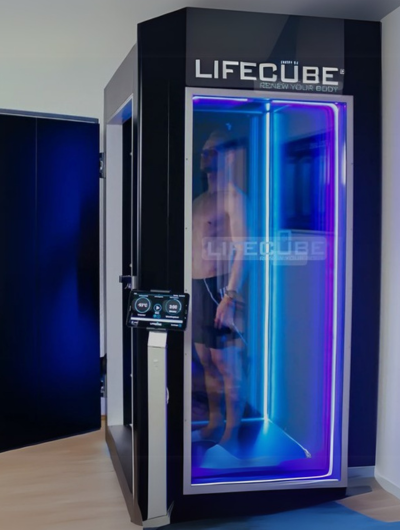
In a nutshell, cryotherapy means “cold therapy” — and yes, it’s exactly what it sounds like. The most common type is whole-body cryotherapy, where you spend a few minutes (usually 2 to 4) in a chamber chilled to around -80°C to -110°C. Think of it as an ice bath on steroids — but without getting wet.
It’s been widely used by athletes for years to help with muscle recovery, inflammation, and even injury prevention. But recently, cryotherapy has crept into the wellness world, where it’s now being linked to benefits like boosted mood, increased energy, and — you guessed it — better sleep.

Why Is Sleep So Hard to Come By These Days?
Before we dive into the icy details, it’s worth understanding why so many of us are struggling to sleep in the first place.
Between busy schedules, caffeine habits, blue light exposure, and the constant hum of anxiety, modern life is hardly conducive to rest. Add in late-night Netflix binges and mindless Instagram scrolling, and it’s no wonder your body forgets it’s meant to power down.
Here’s where cryotherapy comes in — not as a magic wand, but as a potential tool to help your body and mind shift into a calmer, sleep-friendly state.
How Cryotherapy May Improve Your Sleep Quality
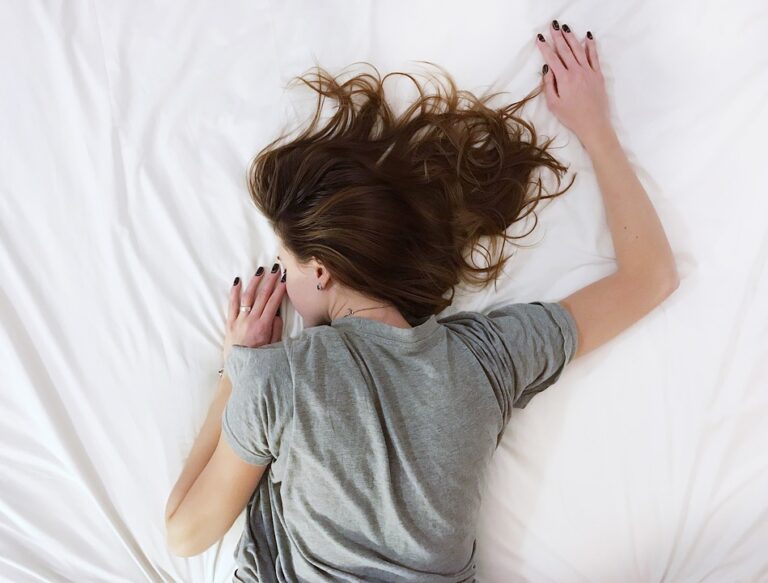
Now onto the juicy bit: how exactly does cryotherapy help with sleep? While there’s still plenty of research to be done, here are the main ways it may contribute:
1. Reduces Inflammation and Muscle Tension
You might not realise it, but inflammation plays a big role in sleep disruption. If your body is inflamed — whether from stress, overtraining, or chronic illness — you’re more likely to experience restless nights.
Cryotherapy works by reducing inflammation, helping your body enter a state of repair and balance. It can also ease sore, tight muscles — so if you’ve been hitting the gym or just feel physically wound up, cryo could help you unwind and get comfier in bed.

2. Triggers a Natural Endorphin Release
Stepping into sub-zero temperatures might sound stressful, but oddly enough, your body responds with a surge of endorphins — your brain’s natural mood boosters. Think of it like the “high” you feel after a run or a cold shower.
This release of feel-good chemicals can lead to improved mood, reduced anxiety, and lower cortisol levels (your stress hormone), all of which are key ingredients for a better night’s sleep.
3. Regulates the Nervous System
One of the most fascinating benefits of cryotherapy is its effect on the autonomic nervous system. This is the system that controls your fight-or-flight response (sympathetic) and your rest-and-digest mode (parasympathetic).
By exposing your body to short, controlled stress (in this case, extreme cold), cryotherapy seems to help reset the nervous system. Over time, this may increase your ability to relax more easily, helping you fall asleep faster and stay asleep longer.
4. May Support Your Circadian Rhythm
Your circadian rhythm is basically your body’s internal clock. It tells you when to feel sleepy, when to wake up, and even when to eat. But poor sleep habits, late-night screens, and irregular routines can throw it out of whack.
Some early studies suggest that cryotherapy may help support a healthier circadian rhythm by reducing sleep latency (how long it takes you to fall asleep) and improving sleep efficiency. In simpler terms: you fall asleep quicker and get better quality rest.
What Does the Research Say About Cryotherapy for Better Sleep?
While cryotherapy is still considered a relatively new field, there’s growing scientific interest in its potential as a sleep aid.
A 2021 review published in the Journal of Thermal Biology highlighted the positive effect of whole-body cryotherapy on sleep patterns, especially in athletes. Participants reported improved sleep duration, better recovery, and reduced fatigue after cryotherapy sessions.
Another small clinical trial in Poland found that individuals undergoing regular cryotherapy sessions slept longer and experienced deeper sleep (as measured by sleep stage analysis) compared to those who didn’t.
Of course, we need more large-scale studies to draw firm conclusions — but the early signs are promising.
Real People, Real Results
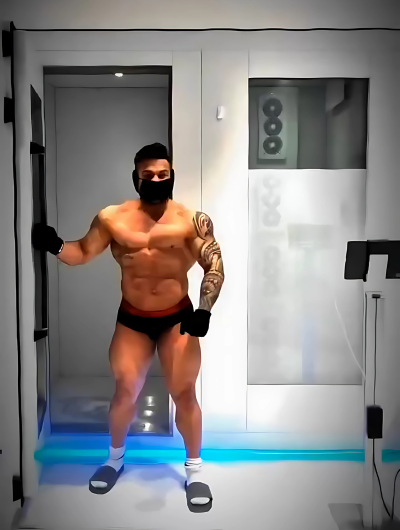
Anecdotally, plenty of people who’ve tried cryotherapy for better sleep report noticeable improvements — especially when it’s done consistently as part of a wider wellness routine.
Some say they feel more relaxed in the evenings, while others experience fewer disruptions during the night. Many cryotherapy centres in the UK, including popular spots in London, Manchester, and Leeds, now offer specialist cryo treatments aimed at stress relief and sleep support.

When’s the Best Time to Do Cryotherapy for Better Sleep?
If you’re hoping to use cryotherapy to sleep better, timing can play a big part.
Most experts recommend doing your cryotherapy in the late afternoon or early evening, around 4 to 6 hours before bedtime. That gives your body time to respond to the initial cold stress, followed by a natural relaxation effect.
Avoid doing it too close to bedtime, though — right after a session, your body might feel energised rather than sleepy, which isn’t ideal if you’re trying to wind down.
Are There Any Downsides or Risks?
For most healthy individuals, cryotherapy is generally considered safe — but it’s not for everyone.
You’ll want to steer clear if you have:
- Heart conditions
- Uncontrolled high blood pressure
- Poor circulation or Raynaud’s disease
- Cold-related allergies
It’s always best to speak with your GP or a cryotherapy professional before trying it, especially if you have any underlying health issues.
Also, cryotherapy should never replace proper sleep hygiene. If you’re still scrolling TikTok in bed at midnight with a double espresso in hand, no amount of cryo is going to fix your sleep.
Tips to Maximise the Benefits of Cryotherapy for Better Sleep
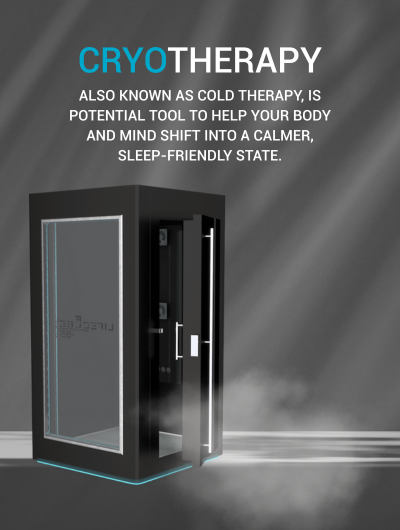
If you’re ready to give cryotherapy a go, here are a few ways to get the most out of it — especially when your goal is better sleep:
- Combine it with mindfulness — Pair your sessions with calming habits like meditation, journaling, or breathwork.
- Be consistent — Like most wellness treatments, results are usually better when done regularly (2–3 times per week).
- Create a sleep-friendly routine — Dim the lights, reduce screen time, and set a regular bedtime to reinforce your natural rhythm.
- Stay hydrated — Cryotherapy can be dehydrating, so drink plenty of water before and after.
- Choose a reputable centre — Make sure your cryotherapy provider is licensed, experienced, and follows strict safety protocols.

So, Is Cryotherapy for Better Sleep Worth Trying?
If you’re dealing with poor sleep and feel like you’ve tried everything else, cryotherapy might be worth adding to your wellness toolkit. While it’s not a one-size-fits-all solution, the science — and the stories — suggest it can play a real role in improving sleep quality, especially when used in tandem with other healthy habits. With more clinics now offering a range of cryotherapy packages in london, it’s becoming easier to try without breaking the bank.
It won’t magically knock you out at 10pm on the dot, but it can help your body feel calmer, less inflamed, and more balanced — all of which are key ingredients for a restful night.
So, if you’re open to a bit of icy innovation, Cryotherapy for Better Sleep just might be the chill-out experience your bedtime routine has been missing.
We all deserve better sleep
At the end of the day, we all deserve better sleep. And while cryotherapy might sound intense, it’s actually a safe, quick, and increasingly accessible way to support your body’s natural recovery and relaxation processes.
Whether you’re an athlete, a busy professional, or just someone desperate for a full eight hours, Cryotherapy for Better Sleep is a trend that’s definitely worth watching — and perhaps even trying.
After all, who wouldn’t want to sleep like a baby… after a blast of ice-cold bliss?
FAQ
Can cryotherapy really help with sleep?
Many people report better sleep after cryotherapy sessions. It may help by reducing stress, easing muscle tension, and calming the nervous system — all of which can make it easier to fall asleep and stay asleep.
How does cryotherapy support better sleep?
Cryotherapy may:
- Lower inflammation
- Trigger feel-good hormones like endorphins
- Calm the nervous system
- Help balance your natural sleep-wake cycle (circadian rhythm)
These effects can create a more relaxed state, which may help you drift off more easily.
When’s the best time to do cryotherapy for Better sleep?
It’s best to have a cryotherapy session in the late afternoon or early evening, ideally 4–6 hours before bed. This gives your body time to go from energised to relaxed.
How many cryotherapy sessions do I need to see results?
Some people feel the benefits after just one session, but for consistent sleep improvements, 2–3 sessions per week are usually recommended.
Is cryotherapy for Better sleep backed by science?
There’s growing research showing cryotherapy may help improve sleep, especially in athletes and people with high stress levels. While more studies are needed, early results are promising.

